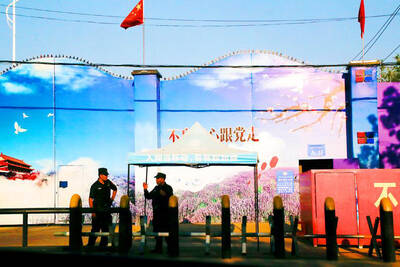The Ministry of Education yesterday said that it was considering measures to instill greater academic fidelity at institutions and preserve the quality of academic papers.
The measures being considered include reducing the student recruitment quota at departments and colleges that fail to enforce academic discipline, and attributing blame to the instructing professor or department.
The ministry has told universities that all master’s and doctoral theses must be transparent and public.
Hopefully, students who do not make their thesis public will become the minority, it said.
The ministry would also publish the ratio of non-public theses at all academic departments across Taiwan, it added.
Oral defense examiners must be university lecturers or researchers of a certain level, and other people, selected for their expertise or professional knowledge, must work with other panelists and do their utmost to prioritize academic professionalism, the ministry said.
It said that it would ask universities to publish their criteria for oral defense panelists and the ratio of individuals serving as oral defense examiners that are sought after for their professional expertise.
If a student’s dissertation is considered to have breached academic integrity, the instructing professor must share the responsibility, the ministry said.
The department to which the professor belongs would also face punitive measures, such as a recruitment freeze, a lower recruitment quota or a subsidy reduction, if they do not provide ameliorative suggestions and measures, it said.
The ministry said that it is planning to purchase systems that can cross-reference academic journals and archived papers for use by universities so that they can more actively investigate allegations of plagiarism.
The ministry’s statement came after Chinese Nationalist Party (KMT) member Chung Hsiao-ping (鍾小平) yesterday presented the ministry with documents supporting his accusation that Hsinchu City Mayor Lin Chih-chien (林智堅) plagiarized parts or the entirety of his master’s thesis when studying at National Taiwan University’s Graduate Institute of National Development, as well as another paper when studying at Chung Hua University.

Former Czech Republic-based Taiwanese researcher Cheng Yu-chin (鄭宇欽) has been sentenced to seven years in prison on espionage-related charges, China’s Ministry of State Security announced yesterday. China said Cheng was a spy for Taiwan who “masqueraded as a professor” and that he was previously an assistant to former Cabinet secretary-general Cho Jung-tai (卓榮泰). President-elect William Lai (賴清德) on Wednesday last week announced Cho would be his premier when Lai is inaugurated next month. Today is China’s “National Security Education Day.” The Chinese ministry yesterday released a video online showing arrests over the past 10 years of people alleged to be

THE HAWAII FACTOR: While a 1965 opinion said an attack on Hawaii would not trigger Article 5, the text of the treaty suggests the state is covered, the report says NATO could be drawn into a conflict in the Taiwan Strait if Chinese forces attacked the US mainland or Hawaii, a NATO Defense College report published on Monday says. The report, written by James Lee, an assistant research fellow at Academia Sinica’s Institute of European and American Studies, states that under certain conditions a Taiwan contingency could trigger Article 5 of NATO, under which an attack against any member of the alliance is considered an attack against all members, necessitating a response. Article 6 of the North Atlantic Treaty specifies that an armed attack in the territory of any member in Europe,

LIKE FAMILY: People now treat dogs and cats as family members. They receive the same medical treatments and tests as humans do, a veterinary association official said The number of pet dogs and cats in Taiwan has officially outnumbered the number of human newborns last year, data from the Ministry of Agriculture’s pet registration information system showed. As of last year, Taiwan had 94,544 registered pet dogs and 137,652 pet cats, the data showed. By contrast, 135,571 babies were born last year. Demand for medical care for pet animals has also risen. As of Feb. 29, there were 5,773 veterinarians in Taiwan, 3,993 of whom were for pet animals, statistics from the Animal and Plant Health Inspection Agency showed. In 2022, the nation had 3,077 pediatricians. As of last

XINJIANG: Officials are conducting a report into amending an existing law or to enact a special law to prohibit goods using forced labor Taiwan is mulling an amendment prohibiting the importation of goods using forced labor, similar to the Uyghur Forced Labor Prevention Act (UFLPA) passed by the US Congress in 2021 that imposed limits on goods produced using forced labor in China’s Xinjiang region. A government official who wished to remain anonymous said yesterday that as the US customs law explicitly prohibits the importation of goods made using forced labor, in 2021 it passed the specialized UFLPA to limit the importation of cotton and other goods from China’s Xinjiang Uyghur region. Taiwan does not have the legal basis to prohibit the importation of goods